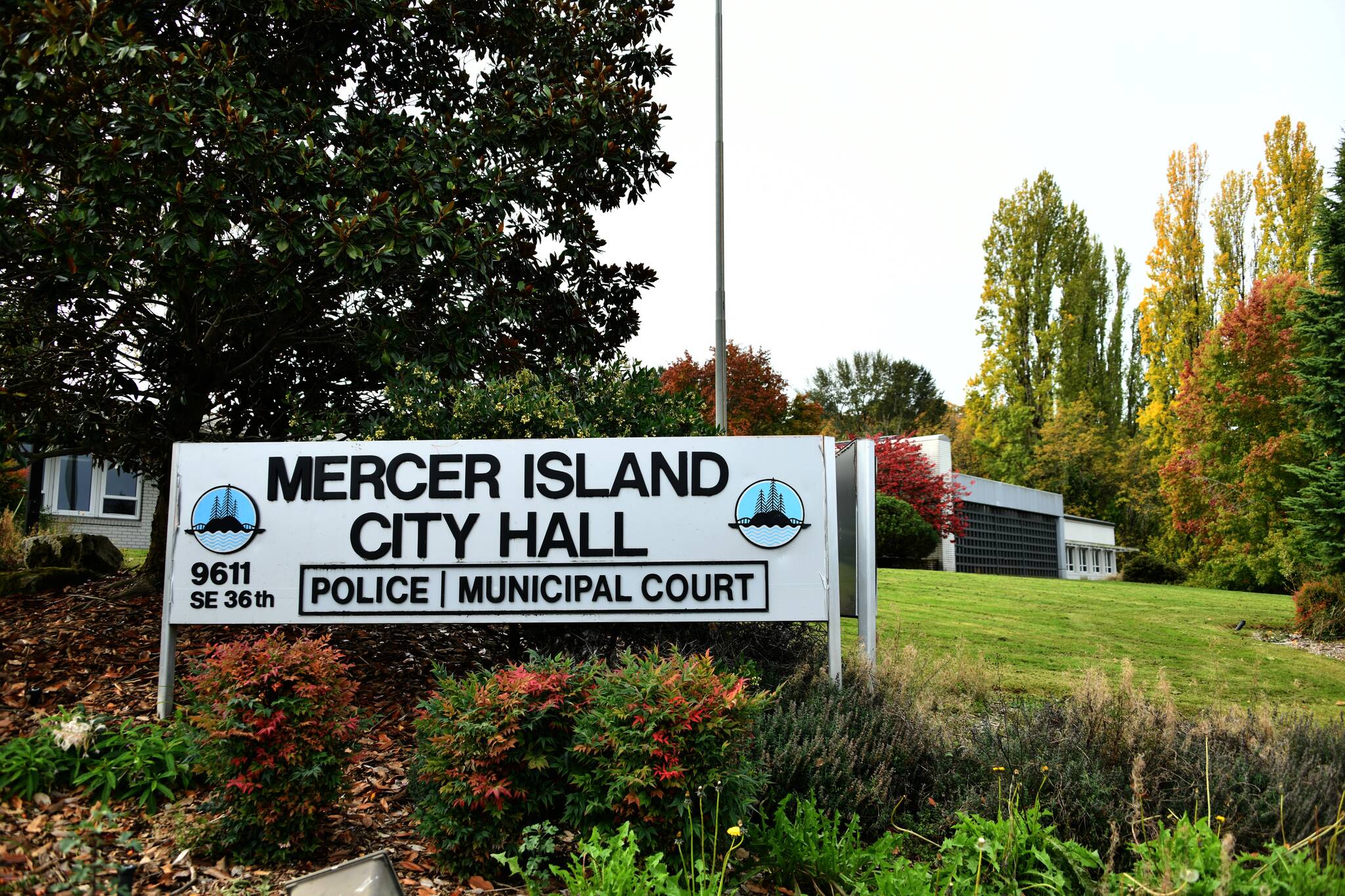Just over seven months after passing an ordinance prohibiting camping and storage of personal possessions on all Mercer Island property, the city council has agreed to partner with The Sophia Way and Congregations for the Homeless for outreach services.
Council unanimously passed a motion at its Sept. 21 virtual meeting to authorize and appropriate $20,000 — $10,000 for each area shelter — to provide services to homeless people on the Island through December of 2022. In a previous Reporter story, City Manager Jessi Bon said the funds were planned to be one of the mid-biennial budget requests.
The possibility of the new ordinance was discussed at council’s Aug. 31 meeting and came to fruition following a report by Mercer Island Police Department (MIPD) Chief Ed Holmes on what has occurred since the previous ordinance went into effect on March 1.
“I am very pleased to report that we have not made any arrests for violation of the ordinance, nor have we issued any citations for violation of the ordinance,” Holmes told council at the Sept. 21 meeting. Any arrests could have resulted in a misdemeanor crime, according to a previous Reporter story.
Holmes said the two shelters — which also provide job connections, transitional housing programs and counseling for mental health and drug and alcohol rehabilitation — have expressed interest in including Mercer Island in their outreach jurisdiction.
Sophia Way CEO Alisa Chatinsky noted: “Hats off to Chief Holmes for leading the way to educate the community to best respond to those living without homes. I also commend the staff and council for their compassionate response to addressing homelessness. The Sophia Way looks forward to a long and successful relationship with the city of Mercer Island.”
During the last seven months of contacting people who are experiencing homelessness, Holmes said that some individuals have accepted MIPD’s offers to connect them to the mobile crisis team, which focuses mainly on mental health concerns or substance issues.
Mike Seifert, MIPD operations commander, said that with the new ordinance, the department will contact outreach workers if needed. The Sophia Way — which has Bellevue and Kirkland shelters — focuses primarily on women and families, and Congregations for the Homeless of Bellevue mainly connects with men.
Holmes discussed police officers’ experiences since the ordinance passed on Feb. 16: “We’ve also learned that people experiencing homelessness can benefit greatly from the services of a qualified outreach worker. Despite our best efforts as uniformed police officers, we understand that not everybody always wants to talk to us, so connecting with someone who is qualified in outreach services can be very helpful.”
Deputy Mayor Wendy Weiker thanked Holmes and his team, which also includes Mercer Island Youth and Family Services Administrator Tambi Cork, for helping to swiftly bring the new ordinance to life.
“Especially now that winter is coming and COVID is still here and folks are going to be needing some shelter who might otherwise be challenged in that regard,” Weiker said.
Cork feels the partnership will provide critical resources for people experiencing homelessness on Mercer Island.
“These two organizations are proven leaders in outreach and support services, and I look forward to having an opportunity for our staff to more formally collaborate with them in supporting our neighbors in need,” she said.
Mayor Benson Wong hopes the city and community will continue to show compassion and look for new ways to increase helping those less fortunate people in the community.
“I see this motion as only the start of a broader conversation/discussion that this council, this community need to have determining how the city can play a bigger role in addressing the regional homelessness crisis and the regional lack of affordable housing,” Wong said.
In February, the city noted that it established the ordinance “to ensure that public property is used in a safe manner and remains accessible for its intended public purpose, such as transportation, recreation” and more.



